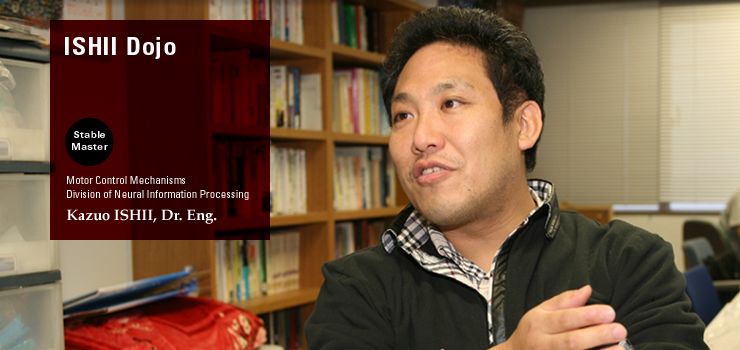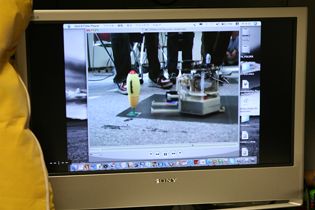 |
| |
 |
| Autonomous
mobile robots capable of judging by themselves are expected
to play a major role in such extreme environments as
those under the ocean, in outer space and inside nuclear
reactors. The main research theme of our laboratory
is how to make such robots as intelligent as possible.
Lab members have divided into several teams to develop
various types of robot, including underwater robots
for ocean surveys, wheeled mobile robots for hazardous
terrain, and omni-directional mobile robots that work
in groups, and discuss the technical issues together.
Mobile robots must be able to execute their assigned
tasks while working together in response to an environment
or situation. The technology and knowledge required
for robot development covers a wide range of fields,
including mechanical engineering, electrical engineering
and artificial intelligence. In our laboratory, therefore,
we undertake all the steps in the process our selves
from mechanical design to making electric circuits and
programs. |
 |
|
 |
| Students
will acquire basic knowledge and skills for robot engineering
by making an actual robot. At the end of the course,
a competition will be held in which the robots made
by each team will compete to complete such tasks as
line tracing. Basic skills will be imparted in three
key areas: mechanical design and production using 3D
CAD, electronic circuit design, and programming. In
the competition, the basic mobile unit of WITH, an omnidirectional
mobile robot is distributed to each team. Each team
will start with the basic mobile unit to which they
will add mechatronic parts such as circuits, programs,
actuators and sensors. Through this competition, students
will experience the difficulties and the joys of making
robots move and will learn the importance of teamwork. |
 |
|
|
|
|